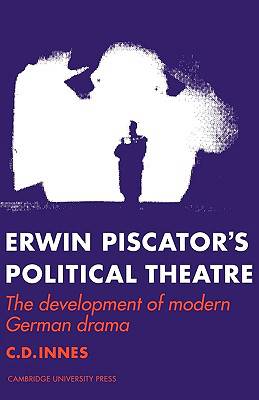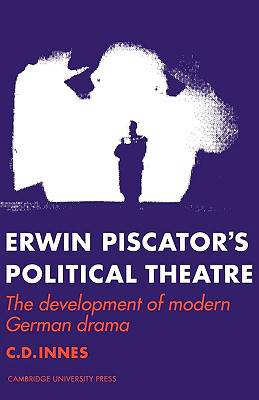
- Afhalen na 1 uur in een winkel met voorraad
- Gratis thuislevering in België vanaf € 30
- Ruim aanbod met 7 miljoen producten
- Afhalen na 1 uur in een winkel met voorraad
- Gratis thuislevering in België vanaf € 30
- Ruim aanbod met 7 miljoen producten
Zoeken
Erwin Piscator's Political Theatre
The Development of Modern German Drama
C D Innes
Paperback | Engels
€ 69,45
+ 138 punten
Omschrijving
This 1977 text was the first full study of Erwin Piscator, the German theatrical producer who was prominent in the 1920s and worked after 1945 with the writers Hochhuth, Kipphardt and Weiss. Professor Innes sketches the background of Dadaism and Expressionism from which Piscator came, and points out the differences between Piscator and the other experimenters of his time. He also gives a vivid description of Piscator's technical innovations, the modern means of communication such as film, the illumination of the stage from below and 'the treadmill', a flat moving band along which the characters walked. These turned drama into a multi-media event. Professor Innes uses Piscator's career as a focus to describe theatrical developments in the twentieth century and to discuss the role of the author, the director, and the actor in drama, the purpose of the theatre, and the involvement of the audience.
Specificaties
Betrokkenen
- Auteur(s):
- Uitgeverij:
Inhoud
- Aantal bladzijden:
- 260
- Taal:
- Engels
Eigenschappen
- Productcode (EAN):
- 9780521291965
- Verschijningsdatum:
- 27/05/1977
- Uitvoering:
- Paperback
- Formaat:
- Trade paperback (VS)
- Afmetingen:
- 140 mm x 216 mm
- Gewicht:
- 331 g

Alleen bij Standaard Boekhandel
+ 138 punten op je klantenkaart van Standaard Boekhandel
Beoordelingen
We publiceren alleen reviews die voldoen aan de voorwaarden voor reviews. Bekijk onze voorwaarden voor reviews.











